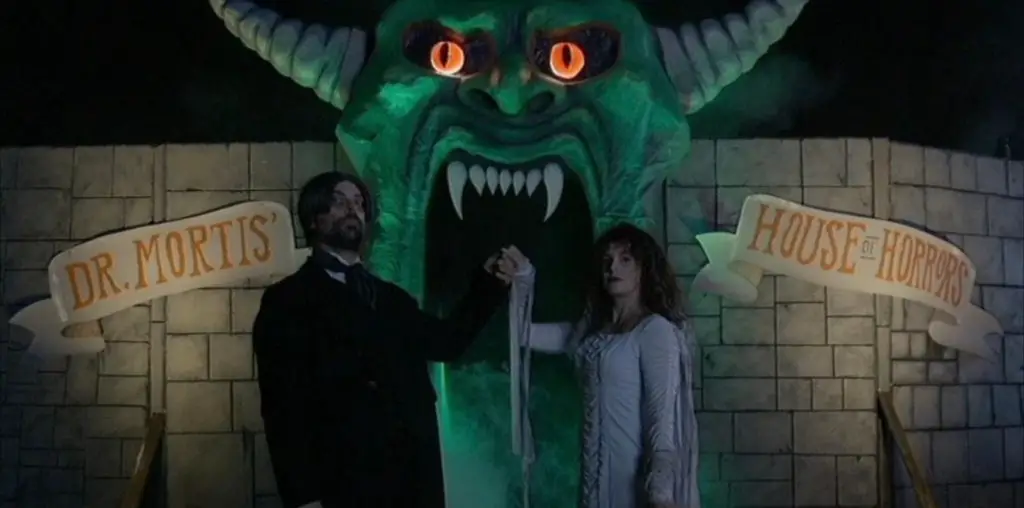
Like many people, I expected “I, Robot” – Will Smith’s latest summer extravaganza– to crater like the Barringer meteorite. The trailer, in keeping with the hip contemporary preview format, is chock full of ridiculous looking action sequences and soon-to-be trademarked “Big Willie Style” wisecracks. Worse, the filmmakers seem to be hunting for legitimacy by loosely connecting the movie to Isaac Asimov’s classic work. All the ingredients seemed to be in place for a Van Helsing magnitude bomb, so it gives me some relief to inform you that “I, Robot” is not only much better than Stephen Sommers’ latest (no large accomplishment), it’s actually a pretty good movie in its own right.
In the year 2035, robots have become an integral part of life. They walk dogs and act as personal valets, but also serve in the military and perform human jobs, often better than humans themselves. Detective Del Spooner (Smith) has no love for robots, a trait owing to his attachment to the past (his “vintage” 2004 Converse Chuck Taylor All-Stars are lovingly represented throughout the movie) as well as some hinted-at event from his own recent history. When he’s called to investigate the apparent suicide of Dr. Alfred Lanning (James Cromwell), one of the founders and head honchos of U.S. Robotics, he ends up surprising an NS-5 (the newest model of robot companion) hiding in Lanning’s quarters. Spooner follows, with USR robot psychiatrist Susan Calvin (Bridget Moynahan) in tow, to determine why the robot has violated its programming. As the movie unfolds, they discover a sinister plot involving the NS-5s that is also connected to Spooner, Lanning, and USR.
“I, Robot” is actually the filmed version of a script called “Hardwired” that was hot property in Hollywood for many years, and taken on its own merits it would probably have evolved into a nifty little sci-fi flick. Why 20th Century Fox felt the need to slap Asimov’s title on it escapes me. But we’ll get to that later.
The movie is less a slam-bang summer blockbuster than you may have been led to believe. The first two-thirds of the film play more like a conventional cop thriller (albeit one set in a future with self-driving cars and robot dog-walkers), and feature only two actual action scenes. Jeff Vintar’s script is smartly written and genuinely witty in places, and – before the obligatory slo-mo shoot ‘em up ending – makes the hoary genre conventions watchable. Smith offers a better performance here than we’ve seen in the past. He’s still a wise-a*s, yet has enough mileage on him to almost pull off the world-weary cop (Chi McBride, on the other hand, perfectly nails the world-weary police supervisor stereotype – I kept waiting for him to groan that he was “getting too old for this s**t”) Moynahan is pretty, in a repressed vixen kind of way, but she’s about as credible as a “robot psychiatrist” as Denise Richards was as a nuclear scientist in “The World is Not Enough.” Both she and Smith look good in leather pants, though. I guess that’s something.
The best performance in the film, however, belongs to Alan Tudyk as the “rogue” NS-5 who goes by the name “Sonny.” It’s voice-only, but Tudyk (“Firefly,” “Dodgeball”) infuses Sonny with more genuine emotion and purpose than most of his human counterparts are able to muster.
Unfortunately, we can’t have a summer movie featuring Will Smith without some big dumb set pieces, and “I, Robot” rolls those out for the climax. This is also where co-screenwriter Akiva Goldsman’s influence can be felt, as Spooner moves from thoughtful musing to frantic bellowing in the span of a few minutes. The ending digs a bit of a hole in terms of going from (sort of) introspective to ridiculous, yet doesn’t completely erase what’s come before. The F/X are largely passable, though I also suspect most audiences could have done without Smith’s gravity-defying, guns blazing vault off the back of his motorcycle, despite director Alex Proyas’ best intentions.
Speaking of Proyas, “I, Robot” doesn’t have anything approaching the feel of “The Crow” or Dark City, his two best-known earlier efforts. One wonders how much control he had over the final product, and how much the lack of it resulted from Will Smith insisting on more one-liners.
As for the Asimov connection…aside from the title, there isn’t one. I’m not sure what cachet the studio hoped to gain by using the name of one of his most famous works, but those familiar with the actual book aren’t going to be fooled by the “suggested by the novel by Isaac Asimov” credit at the end of the movie, nor are they likely to be impressed that the characters (or their names, anyway) of Lanning and Calvin are present. Asimov fans will, at best, be annoyed. Those unfamiliar with the author won’t care, so what’s the upside?
“I, Robot” is likely to disappoint those seeking two hours of pseudo-sci-fi, gratuitous explosions and robot-fu. Similarly, anyone looking for an intricately conceived mystery is barking up the wrong tree. What the film does manage to do is combine elements of both genres into something that, while not a classic by any means, is still a mostly entertaining experience.
Disagree with this review? Think you can write a better one? Go right ahead in Film Threat’s BACK TALK section! Click here>>>
